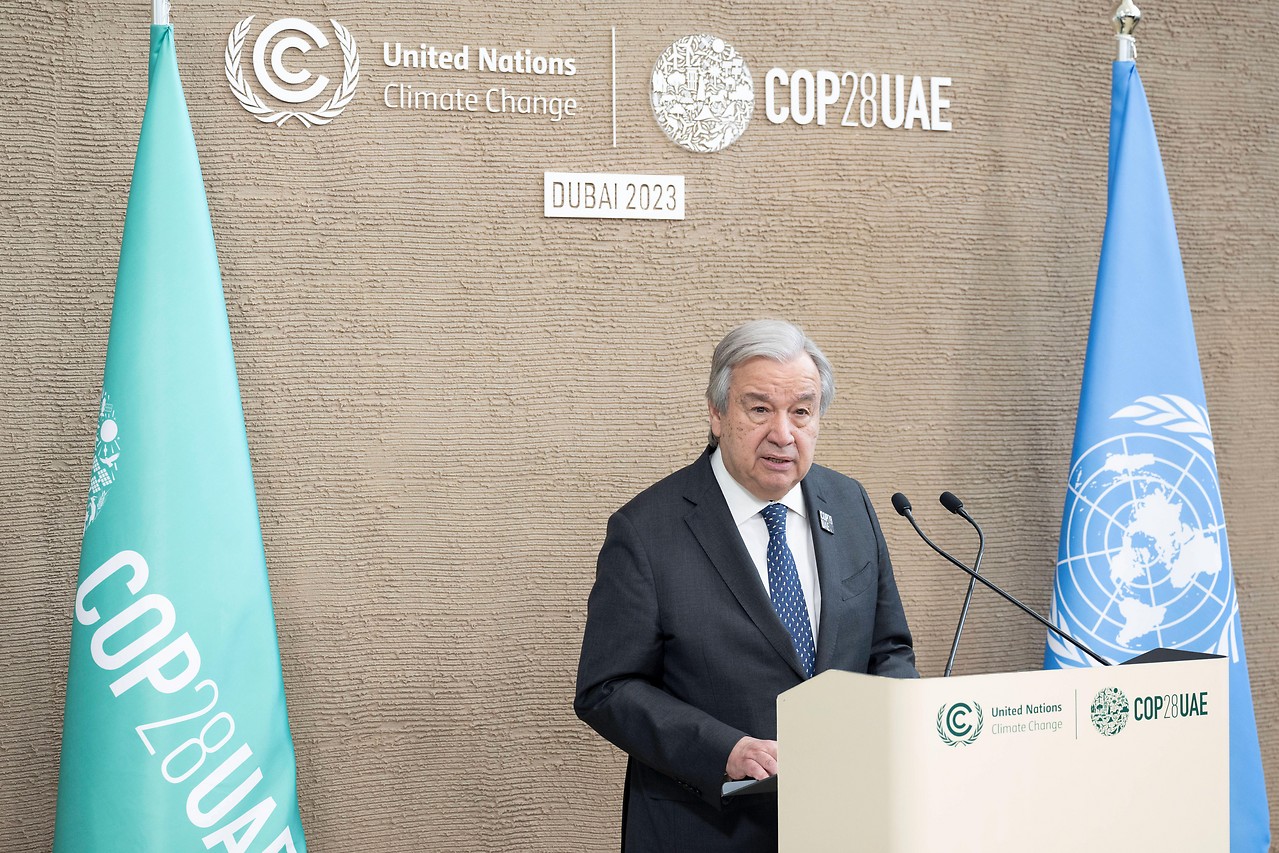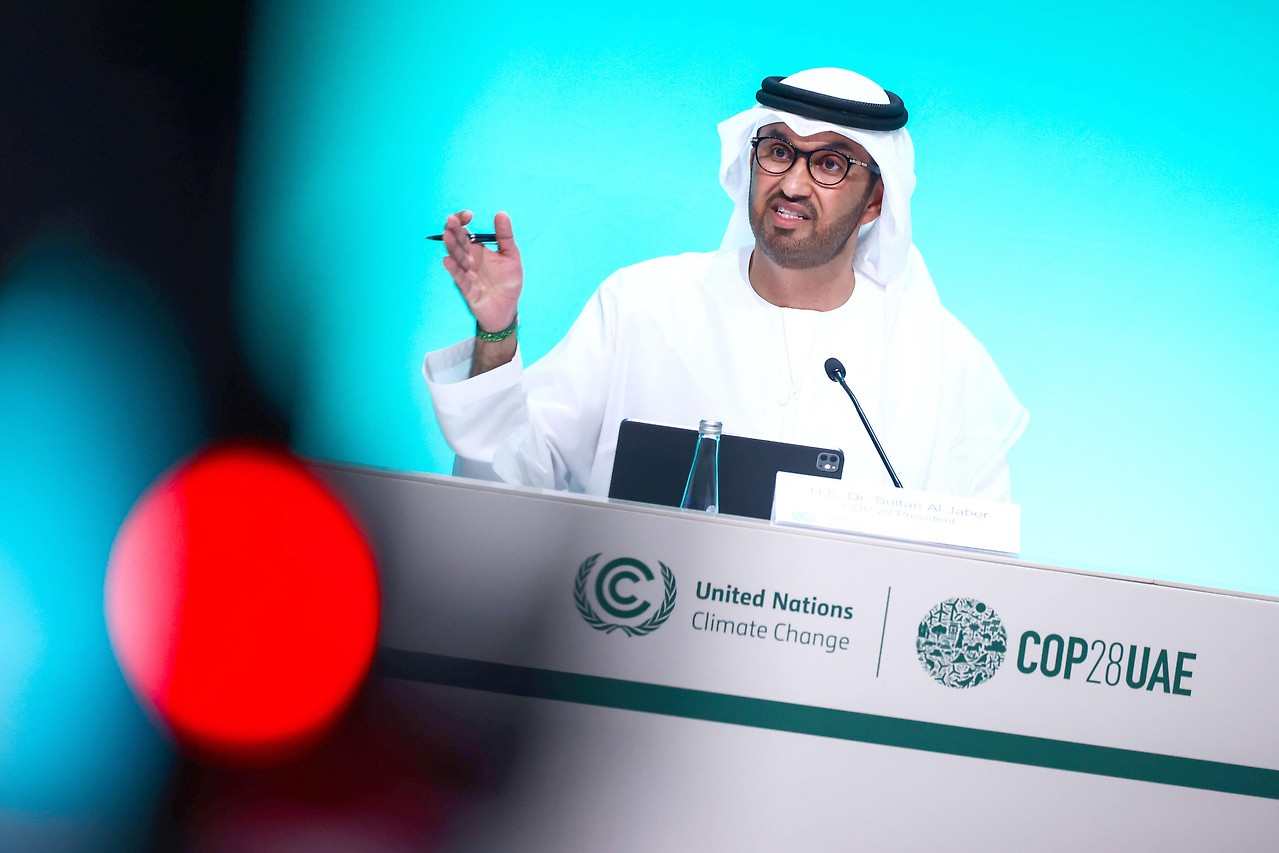Tuesday marks the eighth anniversary of the decision of the Paris Climate Agreement, and thus the most important agreement to date in tackling the climate crisis. Some conference participants still hope for a similarly groundbreaking resolution this year.
Particularly important is the role that fossil fuel oil, natural gas and coal will have to play in the future. There are three possible versions available for the final declaration: “phasing out”, i.e. a complete exit from fossil energy, a watered down version stipulating reduction (“tapering”) and “unrelenting” – which means something like this. Using technologies such as carbon capture and storage (CSS). But an alternative that does not provide for a move away from oil, coal and gas is also possible.
World climate conference
The Conference of the Parties (COP) brings together the European Union and the 197 participating countries that signed the UNFCCC in Rio de Janeiro in 1992. The COP is held each year in a different city, and two-week negotiations work out the text of the resolution.
The new draft stipulates a “gradual reduction.”
However, the new draft of the resolution’s central text no longer contains a shared commitment to the global phase-out of all fossil fuels. The version, which was presented in Dubai on Monday evening (local time) after long delays, envisages “reducing the use and production of fossil fuels”. This should happen in a “fair and orderly” manner in order to achieve greenhouse gas neutrality “by or before 2050.”
Jasmine Doerger, a climate and energy expert at Greenpeace Austria, told ORF.at that the new draft represents a “bitter setback.” “The option to phase out fossil fuels has completely disappeared, leaving only a weak concession to reduce fossil energy around 2050.”
“Maximum ambition” is required in the last few metres
Austria and the European Union should not be satisfied with this “toothless card”; Rather, they must continue to struggle to exit fossil energy. WWF Austria described the draft “global inventory” as disappointing. It does not send “a clear political signal that should come from this climate conference,” WWF spokesman Thomas Zeitner said.
UN Secretary-General Antonio Guterres had earlier called on the 200 participating countries to come together and decide to phase out fossil fuels. “Now is the time to achieve maximum ambition and maximum flexibility,” Guterres said in Dubai. “Ministers and negotiators must leave arbitrary red lines, dead ends and blockades behind.” The German newspaper Der Spiegel also recently raised the possibility of “the end of the paleontological world as we know it.”
Resistance from major oil producers
While scientists insist that climate goals cannot be achieved without a complete phase-out of “fossils,” and the United States and the European Union also speak out in favor, growing resistance has taken shape in recent days among members of the United Nations. Petroleum Exporting Countries (OPEC)…
It was said on Saturday that several OPEC members appeared to want to veto the inclusion of such an exit in the new climate agreement. For example, Saudi Arabia, the largest OPEC producer, along with Russia and other countries, have argued that the focus of the UN Climate Change Conference (COP28) should be on reducing emissions rather than targeting the fuel sources that cause them.
COP: The Struggle for the Final Declaration
It remains uncertain whether there will be a final announcement at the UN Climate Change Conference (COP28) on Tuesday. Conferences rarely finish on time – and this year the topic is nothing less than the prospect of exiting the fossil fuel era.
UN: “End unnecessary tactical blockades”
A day before the scheduled end of the conference, UN Climate Minister Simon Steele called on negotiators from nearly 200 countries to end any “unnecessary tactical blockade.” Steele said the tactics used in Dubai must end. Negotiators must agree on the most ambitious decisions; Every step backward would “cost untold millions of lives.”
Guterres spoke in favor of ambitious language in the final text: “The cornerstone of the conference’s success is consensus on the need to phase out fossil fuels – consistent with the goal of reducing global warming to 1.5 degrees.” This does not mean that all countries must act with the same speed. It is important to reach net zero worldwide by 2050.

COP28 president under pressure
This year’s climate conference was dominated by debate about the future of fossil energy, which got its president into trouble. Jaber, who also heads the state oil company Abu Dhabi National Oil Company (ADNOC), was under pressure due to an investigation conducted by the British newspaper The Guardian and the Climate Reporting Centre.

They reported that Jaber said in a video call with United Nations representatives in November that there was “no science” to prove that phasing out fossil fuels was necessary in order to reduce global warming to 1.5 degrees compared to the maximum of the pre-industrial era.
Jaber strongly rejected the criticism and felt that he was misunderstood. He always emphasized that it was necessary to “keep a target of 1.5 degrees within reach.” He wants to work with everyone and “create a plan that is workable, actionable, realistic, practical and gets real results.” For many participants, the United Nations Climate Change Conference (COP28) can only be considered a success if it actually leads to an agreement on exiting all fossil fuels, writes the American channel CNBC.

“Food practitioner. Bacon guru. Infuriatingly humble zombie enthusiast. Total student.”








More Stories
Kyiv: Russian Kursk offensive halted
US Presidential Election: Former US Government Officials Warn Against Donald Trump's Election
Netherlands wants to leave asylum system